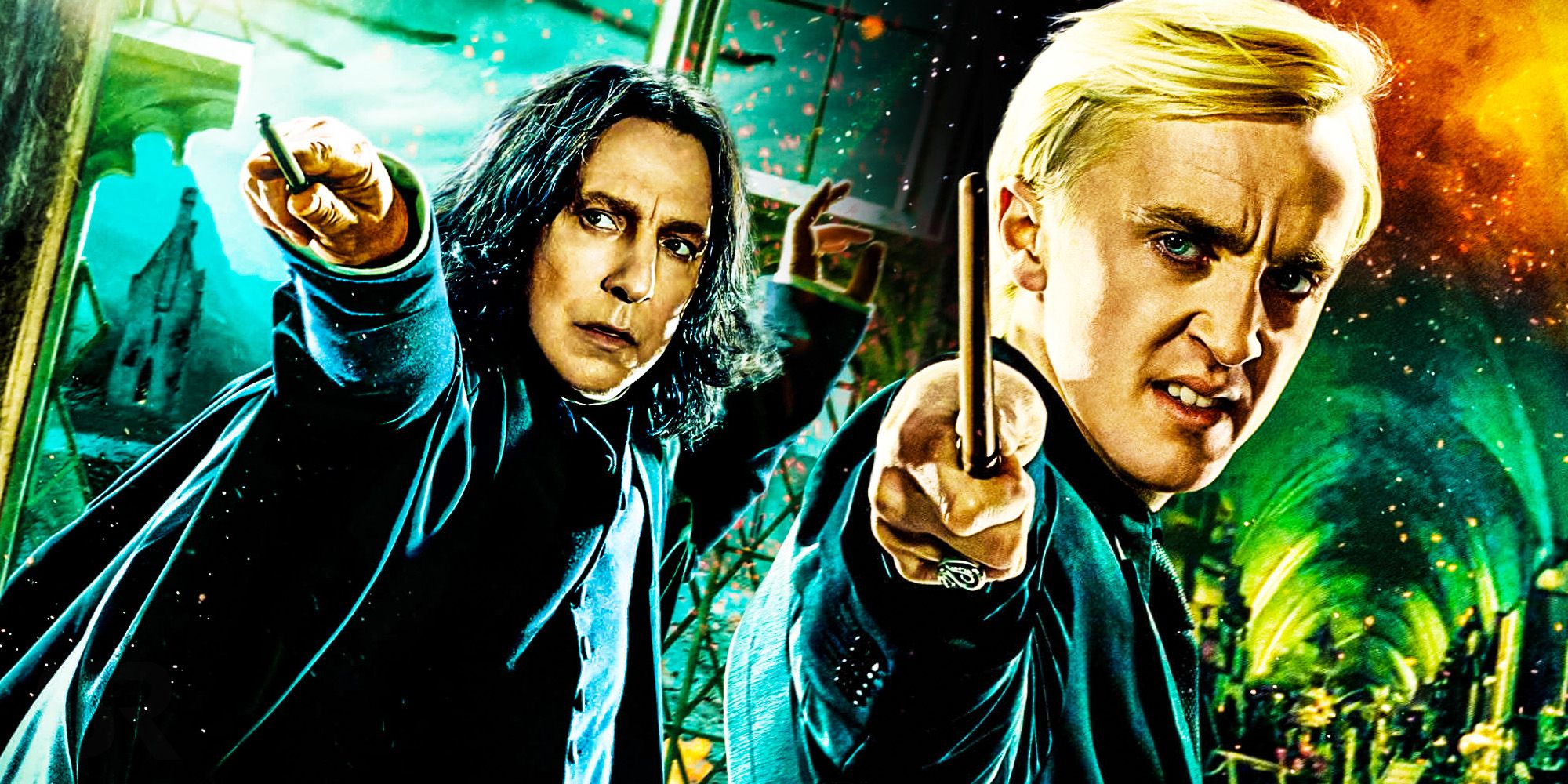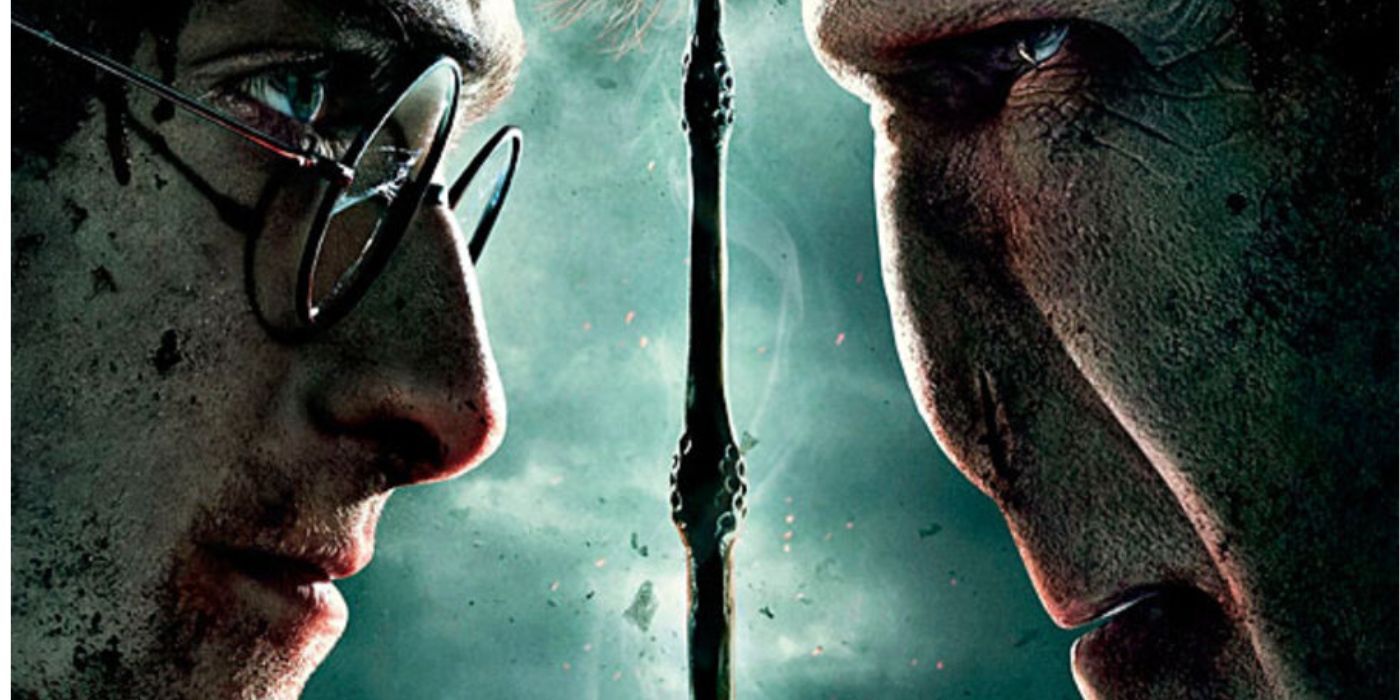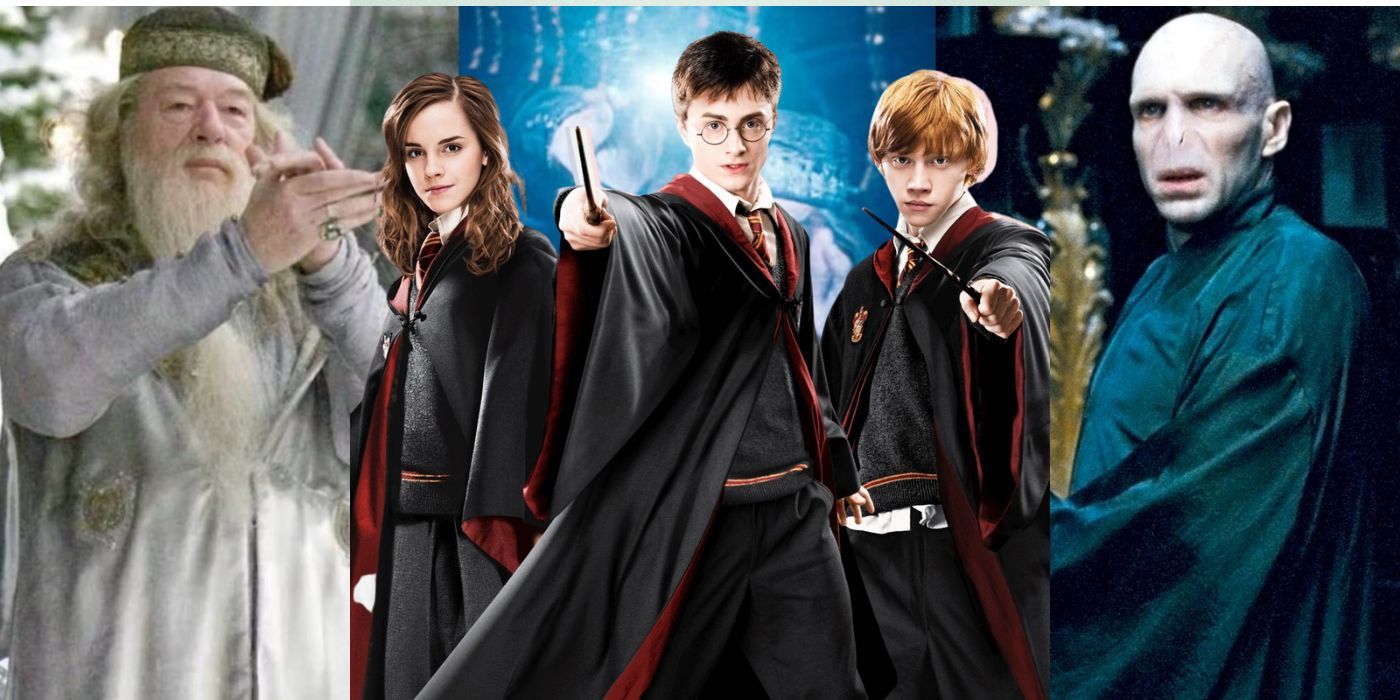The Harry Potter series is full of morally complex characters who always fall short of redemption. This has been a topic of frustration for years, with characters like Severus Snape and Draco Malfoy never having a moment in which they resolved their faults. Instead, most surrounding the Boy Who Lived seem to fall within a moral grey area. This has led to debates about whether these characters are definitively good or bad, with fans flocking to one side of the argument or the other. However, this moral ambiguity is a significant feature and theme of the Harry Potter series and drives essential aspects of Harry’s story home.
At the beginning of the Harry Potter series, it was easy to tell who was good and who was bad. For example, Albus Dumbledore appeared to be the nearly omniscient guardian, which meant he was a wholly good character through and through. However, by the end of Harry Potter and the Deathly Hallows, it’s clear that the old headmaster was far more complex than that. Similar switches in perceived morality can be observed on the other side of the spectrum. “Bad” characters like Severus Snape and Draco Malfoy were revealed to have some good qualities, though they couldn’t reasonably be called good themselves. As frustrating as this is, the moral ambiguity in Harry Potter served a purpose.
Harry Potter Challenges The Idea Of Black & White Morality

Harry Potter falls within the standard “Hero’s Journey” structure. These stories tend to pivot on the idea of black-and-white morality. It’s always easy to tell who is good and who is evil. Even if there is a “betrayer” character, they definitively fall into their new role by the end of the story. However, Harry Potter turns this concept on its head. The story itself follows the same tried and true formula, but the characters Harry interacts with throughout are far more challenging to define. After years of consuming stories that wrap characters with neat little bows, Harry’s story can feel a little uncomfortable.
Severus Snape is an excellent example of this. Audiences spend most of Harry Potter trying to determine whether he is good or bad. In the end, it is revealed that he loved Lily Potter and dedicated his life to protecting her son. However, this didn’t change the fact that he had done truly detestable things, both before and after Lily’s death. He had tried convincing Voldemort to kill only Lily’s family and spare her, proving that he had a distorted understanding of love. He agreed to protect Harry in an attempt to wipe away his guilt and had no genuine care for the boy’s life (at least at first). Since there was no evidence in Harry Potter that Snape even understood that these things were wrong, he was never fully redeemed.
Still, this is a far more realistic representation of morality than the black-and-white concepts of a typical Hero’s Journey. Snape, as well as Harry Potter characters like Draco Malfoy who lacked a definitive redemption, made good choices for the wrong reasons, and vice versa. The debate over whether Snape was good or bad has no real answer—he was both, and he was neither. Upon Snape’s death, he hurt people, and he helped people, and both actions had a profound impact on Harry’s story.
Harry Potter Is Good & Voldemort Is Bad – Everyone Else Is In The Middle

Though Harry Potter challenged the standard ideas of morality within the traditional Hero’s Journey, it didn’t throw the formula entirely out the window. Both Harry and Lord Voldemort fall perfectly within the standard archetype of hero and villain. Harry, a prophecized hero before his birth, was tempted repeatedly but always made the selfless decision to save and protect anyone and everyone. On the other hand, Voldemort was born evil in Harry Potter. He never chose darkness, it was simply who he was, making him incapable of good deeds or selflessness.
Though no real person is definitively good or bad in this way, audiences naturally seem to want to place characters (and even other real people) in these boxes. This is why characters like Severus Snape and Albus Dumbledore feel uncomfortably incomplete. They are left in the gray areas between the ends of the spectrum that Harry and Voldemort represent. Ultimately, the same is true for every other character of the Harry Potter series—even Hermione and Ron.
Hermione Granger was intelligent but closed-minded. She sought black-and-white solutions for complex problems, such as house-elf rights. She was absolutely correct that the normalization of slavery in the wizarding world was a disgrace, but refused to approach the problem in a way that took the opinions of the oppressed into account (and steamrolled them instead). Ron Weasley was a loyal friend, but his poor confidence and jealousy caused him to treat others poorly and lash out. Neither of these character faults was ever resolved in Harry Potter. This was just who Ron and Hermione were.
Why Harry Potter Characters Were Better Off Without Clear-Cut Redemptions

Ultimately, every character in Harry Potter fell just short of redemption. The story could have seen Severus Snape apologize to Harry for holding his father’s sins against him or for his role in Lily’s death. Draco could have stood by Harry’s side in the fight against Voldemort. Dumbledore could have told Harry that the things he did had been wrong, even if he had once deemed them necessary. However, the real world doesn’t come with such neat redemptions, and Harry Potter challenges the idea that any person could ever be so morally black and white.
Since the debate regarding character morality in Harry Potter has been so prevalent, some have begun to hope that the HBO Harry Potter remake will adjust the story to add such details in. People are looking for a definitive answer regarding these characters as a way to end the discomfort that comes with moral ambiguity. However, such changes would contradict the meaning of the Harry Potter series. As Sirius Black said, “The world isn’t split into good people and Death Eaters. We’ve all got both light and dark inside us.“




